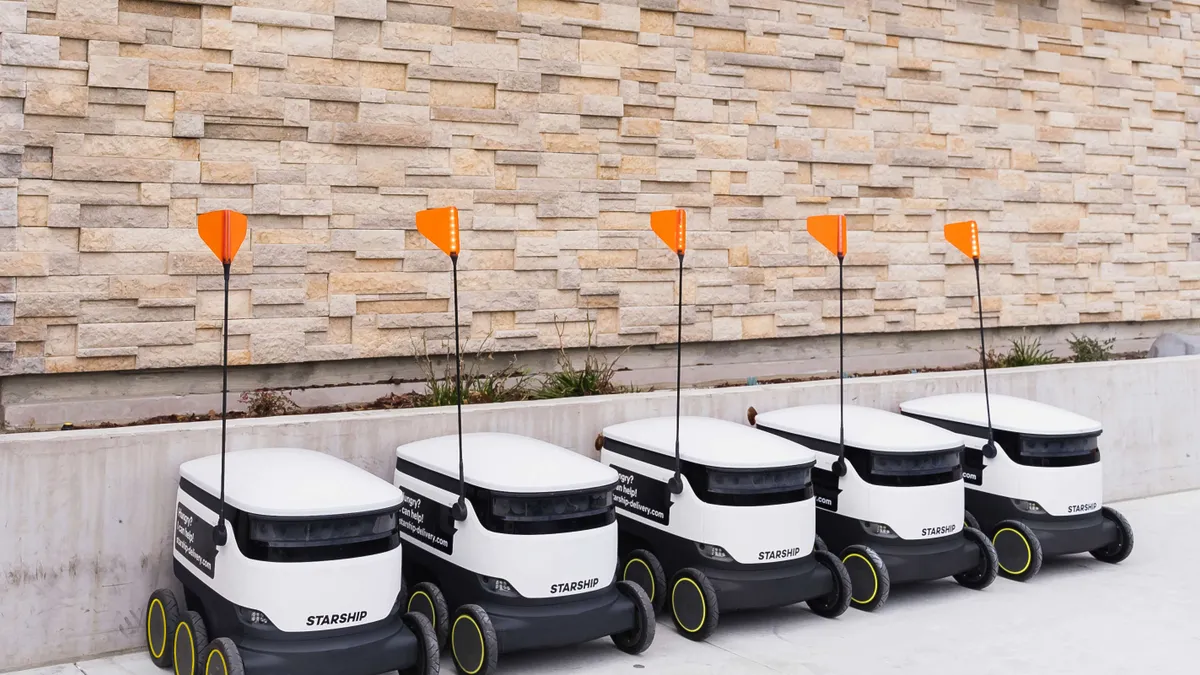Rapidly advancing technology is presenting grocers with unprecedented opportunities to move their businesses ahead, but the industry’s tendency to move slowly to test and implement new concepts poses a central challenge for retailers as they look to embrace change, experts said during a webinar on Tuesday.
The issue is becoming especially urgent for grocers as artificial intelligence upends long-established processes at the heart of retailing, threatening to put retailers that don’t make adjustments fast enough at a substantial competitive disadvantage, said Gary Hawkins, founder and CEO of the Center for Advancing Retail & Technology.
“What we’re seeing happen is the pace of change outside organizations is growing far faster than it is within organizations,” Hawkins said during the event, where he also discussed “Bionic Retail,” his newly released book about how retailers approach technology. “I think that in many traditional retailers, it’s those established beliefs and ingrained practices that are preventing traditional retail from really fully benefiting from all this new innovation, all these new capabilities.”
Retailers sometimes put themselves behind by testing new technologies or systems without a clear plan for promptly evaluating the results and deciding whether the ideas are worth pursuing, said Tom Furphy, a former Amazon executive who is now CEO of Consumer Equity Partners.
“One of the biggest afflictions in our industry today is the never-ending pilot,” said Furphy, adding that retailers often take so long to decide whether to proceed with a new idea that they miss other opportunities to press ahead.
“Too often we see retailers after years of really good intentions and a lot of great work with these kinds of unending product roadmaps, intertwined systems, dependent processes, massive technical debt,” Furphy said, referring to situations where there is a gap between where a given technology needs to be and where it actually is. “It’s really hampered retailers in general [from being] able to innovate as fast as they could or should.”
Not all projects have to succeed
Senior executives have to take an active role in monitoring their companies’ technology roadmaps and accept that if an idea doesn’t pan out, it doesn’t mean testing it wasn’t worthwhile, Mike Stigers, president of Wakefern Food Corp., said during the session.
“Leadership has to have the courage to fail. You have to drop your ego and say, ‘You know what, we’re four weeks into this I thought we’d be further along. Why aren’t we? I know it’s supposed to go for 12 weeks [but] let's just kill it now,’” Stigers said. “If we can set the tone to do that, and to have that accountability and responsibility and to have the courage to do that, boy, look at the millions that would be saved and that we can now invest in the things that will be much more fruitful for us.”
Sometimes the impediments retailers are dealing with appear relatively easy to overcome. For example, some retailers are limited in their ability to outfit workers in their stores with technologies that require fast data connections because they haven’t upgraded their WiFi networks, Hawkins said.
But regardless of the complexity of a technology a retailer is looking at, it’s essential for leaders to come up with clear plans to work out the details and stick with them, said Zach Bello, a former digital strategist at Kroger and Hy-Vee who is currently head of partnerships at grocery digital merchandising platform Prodx.
“How do we structure and formalize the things we’re trying to understand, the things we’re trying to prove, the things we’re trying to measure, and put actions in place to execute against to understand as quickly as possible whether our hypotheses on those things are true or not?” said Bello. “So the faster and the more efficient you can do those things, the more you can learn, and then the quicker you can iterate to get to the ultimate goal where you’re trying to head.”













